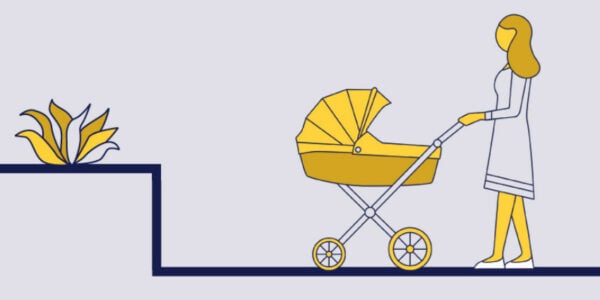These guidelines aim to inform multi-agency practice when the state takes safeguarding action pre-birth, at birth and in the immediate follow-up period, after discharge from hospital.
Films
The guidelines are supported by a series of resources to assist professionals involved in safeguarding babies at or close to birth, including the following range of films explaining more about the guidelines and the practice changes made by the local authorities and health trusts involved in the research.
Additional resources
One of the changes implemented by some of the local authorities and health trusts involved in the research has been the introduction of a revised birth arrangements form, developed jointly by health and social care professionals with input from parents with lived experience of separation. It enables professionals to discuss and agree with parents and the wider family a very detailed plan for what will happen if the parents and baby need to be separated.
Together for Children Sunderland and Swansea Council/Swansea Bay University Health Board have kindly shared their forms to provide an example of what might be included – they can be downloaded here.
Pre-birth practice (conception to labour)
The following statements should guide practice with parents and their unborn baby throughout the pre-birth period.
- When there are safeguarding concerns, parents and their unborn baby are referred to the local authority quickly, and professional engagement starts early in pregnancy to include a timely offer of specialist support (first trimester).
- Case allocation maximises continuity of professional involvement throughout the pre-birth period and beyond.
- Parents and professionals co-define needs and goals, and work collaboratively to identify and build on strengths throughout the pregnancy.
- Professionals work proactively with parents and the family and friend network to provide support matched to identified needs and concerns that may place the baby at risk of significant harm during pregnancy and after birth.
- Processes are initiated in a timely manner to facilitate careful and planned decision making.
- Professionals’ concerns and plans are shared with parents at every step of the way, including any plan to initiate care proceedings at birth; the understanding of parents is continually checked.
- Professionals support parents to access robust, comprehensive
and expert legal advice. - The birth arrangements and plan for the baby after birth are shared at a timely point. The birth arrangements contain sufficient detail of the management of risk. Choice and control are offered to parents wherever possible.
Practice within the maternity setting and at first court hearing
The following statements should guide practice with parents and babies in the maternity setting.
Care for mother and baby
- Parents experience continuity of professional involvement from community to maternity setting (midwife, social worker).
- Women receive trauma-informed care during labour, birth and on the postnatal ward.
- Parents’ privacy and confidentiality are respected
- Parents and midwives understand – and are kept fully informed of – the plan (or changes to the plan) regarding care proceedings, the baby’s placement, and details of any court hearing.
- Careful consideration is given to the inclusion of the father or co-parent in the care of the baby while in hospital.
- Careful consideration is given to the role of the family and friend network in providing support to the parents while in hospital.
- Proportionate supervision of the mother and baby is provided on the ward and there is a shared understanding of professional roles and responsibilities.
- Parents are given maximum opportunities to parent their baby, wherever safe and in the baby’s best interests, holding in mind the possibility of discharge home or reunification.
The first hearing
- There is continuity and sufficiency of independent legal support, including advice and representation to enable parents to participate fairly.
- There is a planned and proportionate approach to the timing of the first hearing (notice), taking account of parents’ ability to participate.
- An inclusive approach is taken to family and friends regarding legal proceedings and decision making.
- Mothers receive support to attend court, including transport, and are offered the alternative of inclusive arrangements for a private and supported remote hearing.
- Professionals in the courts are respectful and sensitive to the stress and anxiety of parents, compounded by proceedings at birth.
Preparing for separation or a baby’s placement
- Parents are offered adequate time to prepare for separation. Attention is paid to their wishes regarding the detail of separation, and they are offered choice wherever possible.
- Opportunities are created for parents to express their wishes and preferences with regards to care for their baby, and for them to create memories of their first hours and days with the baby to support ongoing connections.
- Parents are given clear information about their baby’s placement and family time (contact) arrangements prior to discharge.
Leaving hospital and returning home
The following statements should guide practice when parents are leaving the hospital and returning home without their baby.
- Professionals check the immediate basic and emotional support needs of parents prior to them leaving the hospital.
- Midwifery case allocation maximises the opportunity for continuity of specialist/appropriately trained care, and an assertive outreach approach is taken to postnatal care
- The role of kinship and foster carers is developed to maximise opportunities to support parents to bond with their baby.
- Agencies work collaboratively with parents to continue to offer support to address identified concerns and needs, including reproductive health.
- Parents are supported to fully participate in care proceedings and, where required, additional support is offered through an independent advocacy service.
- Parents are provided with clear information concerning the timing and purpose of family time, and support is given by the local authority to try to maximise positive interactions between parents and their baby.
- Professionals involved with the separation are offered an opportunity to debrief and have access to clinical supervision.





